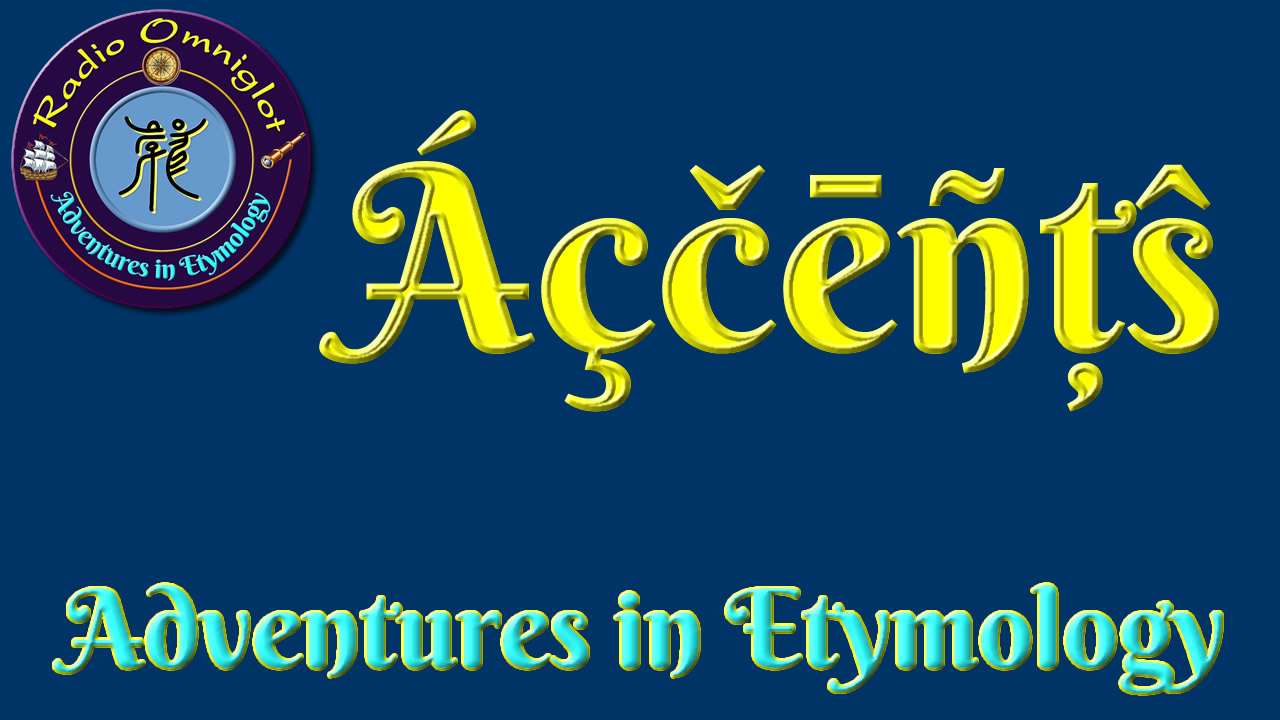Podcast: Play in new window | Download
In this Adventure in Etymology we untangle the roots of the word number.
A number [ˈnɐmbə(ɹ) / ˈnʌ̟mbɚ(ɹ)] is:
- Quantity
- An abstract entity used to describe quantity.
- A numeral: a symbol for a non-negative integer.
- An element of one of several sets: natural numbers, integers, rational numbers, etc
other meanings are available
It comes from Middle English nombre (number), from Anglo-Norman noumbre (number), from Old French nombre / nonbre (number), from Latin numerus (number, collection, quantity, rank, position), from Proto-Italic *nomezos, from PIE *nem(h₁)- (to distribute, give, take) [source].
Words from the same roots include economic(s), geometrical, metronome, nemesis, nomad and numb in English, ņemt (to take, seize, accept, enjoy) in Latvian, nehmen (to take, hold, grasp) in German, nifer (number) in Welsh, and nimh (poison, venom) in Scottish Gaelic, and nëmë (curse) in Albanian [source].
In Middle English, words for number included rime, which is related to rhythm and rhyme in modern English [source], and ȝetæl, which also meant calculation, reckoning, a series and other things, and is related to tell and tale in modern English [source].
Incidentally, a numeral is a symbol that is not a word and represents a number, such as 1, 2, 3, ४, ५, ६, VII, VIII, IX, etc. It comes from the same roots as number [source].
The numerals 1, 2, 3, etc are commonly known as Arabic numerals, a name that comes from Medieval Latin numerus Arabicus, as they arrived in Europe from Arabic-speaking countries. They actually originated in India and developed from ancient Brahmi numerals in about the 3rd century BC. They are also known as Hindu numerals, Hindu-Arabic numerals, Western Arabic numerals or Indo-Arabic numerals [source].
The numerals used in Arabic and other languages, such as Persian and Urdu, are known as Eastern Arabic numerals and look a bit different: ٠ (0), ١ (1), ٢ (2), ٣ (3), ٤/۴/۴ (4), ٥/۵ (5), etc [source].
You can see numerals from many writing systems at: https://www.omniglot.com/language/numerals.htm, and you can find numbers in many languages at: https://www.omniglot.com/language/numbers/
You can also listen to this podcast on: Apple Podcasts, Amazon Music, TuneIn, Podchaser, Podbay or Podtail and other pod places.
The theme tune for this podcast is The Unexpected Badger / Y Mochyn Daear Annisgwyl, a piece I wrote and recorded in 2017.
If you would like to support this podcast, you can make a donation via PayPal or Patreon, or contribute to Omniglot in other ways.
Radio Omniglot podcasts are brought to you in association with Blubrry Podcast Hosting, a great place to host your podcasts. Get your first month free with the promo code omniglot.
I also write about words, etymology and other language-related topics on the Omniglot Blog, and I explore etymological connections between Celtic languages on the Celtiadur blog.













